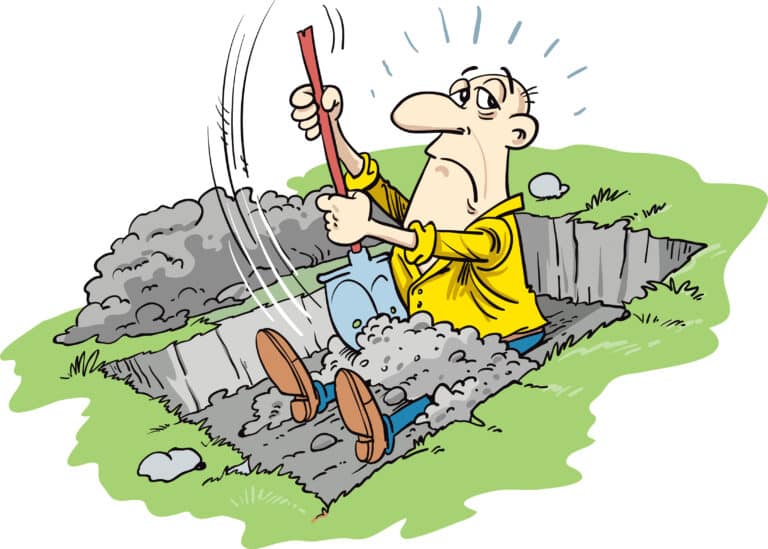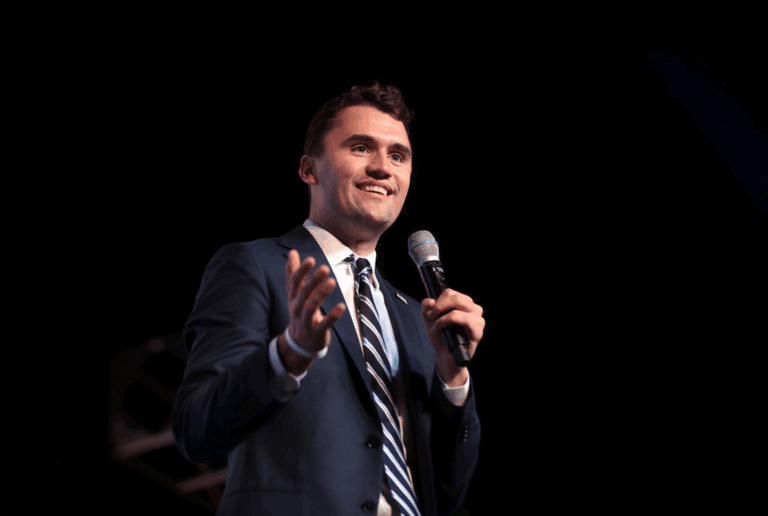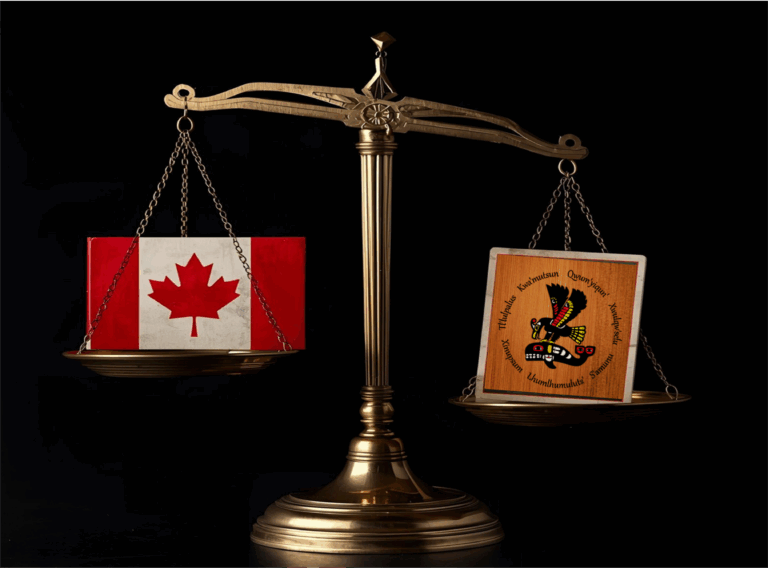Has Alberta jumped the shark? Jim Prentice’s pre-election budget has me in a bleak Spenglerian mood – perusing Kipling’s “Recessional” and other such texts on the decay of civilizations. Alberta, you know, makes a sort of cameo in “Recessional”. Old Rudyard, who would make a famous visit ten years later, opened his prophetic admonition to the Empire with:
God of our fathers, known of old,
Lord of our far-flung battle-line,
Beneath whose awful Hand we hold
Dominion over palm and pine –
“Palm” is meant to evoke Britain’s middle Eastern and north African possessions; “pine” is pretty much a pointer to us, to the Great Lone Land. You are specifically meant to think of what is now Alberta.
And when Kipling spoke of increasingly effete hearts that “trust/ in reeking tube and iron shard”, was he talking about artillery – or perhaps, unwittingly, of oil wells?
The new Progressive Conservative budget re-introduces the odious phenomenon of the tax bracket to Alberta income taxation. The flat Alberta income tax adopted in 1999 was the most ideologically ambitious achievement of the Klein years. They are remembered as a time of what is now called “austerity” in the public treasury, but ideologically, austerity is mere detail – a quarrel between political interest groupings, and between generations, over how the state is going to pay for whatever it does. Left-wing governments have, when reality (in the form of credit markets) demanded it, been just as ready to be “austere” as right-wing ones.
The flat tax, by contrast, is a signal to the taxpayer that every dollar he earns will be treated equally. All shall contribute in proportion to their income, beyond a certain exempt amount. This is a bourgeois form of radical classlessness, a small revolution in human affairs. It expresses the principle that the rich man is as entitled to every extra dollar of income as the middle-class man, and that becoming rich shall not be discouraged. No distinction is made between different kinds of productive activity; the work of the hand and the mind is placed on an equal footing. The flat tax discourages the leisure of the rich, and also discourages other forms of tax evasion – leisure being, notoriously, the untaxable good – at the edges of what would otherwise be income brackets.
A flat tax suited the old, classless spirit of Alberta, in which a welder might out-earn a lawyer and a professor might envy the larger house and the earlier retirement of the neighbour who manufactures custom truck bodies. But Prentice’s budget has introduced strong progressivity to the tax system, all at once: there are two now kinds of tax credit for low-income families, three explicit brackets for direct taxation of income, and a progressive “health levy” tucked into the income band between $50,000 and $100,000.
The reaction of conservatives has been to object to the abandonment of a radical conservative principle, with the added annoyance of manifold increases to user fees for everything from death certificates to vehicle registrations. Alberta has been made more like Ontario, fiscally. How sure are we, though, that something of this sort was not inevitable? Over the past 30 years, Alberta has, if you’ll take the point, become less and less like Alberta.
The province was once frighteningly dependent on the extraction of “conventional” oil and gas. Over the years, its economy has diversified, seemingly doing so faster when governments paid less conscious attention to planned diversification. Tarsands oil is a highly synthetic product, as the name of Syncrude Ltd. reminds us – more like mining crossed with chemistry than traditional drilling. Our oil and gas expertise has gradually sprouted into a myriad of other fields serving worldwide markets: fabrication, materials science, process engineering, environmental and safety businesses… you name it.
We have built great universities, design companies, financial trading firms, and construction businesses on the base of oil money. Albertans still have the habit of checking the price of West Texas Intermediate like other people check the weather forecast, but Edmonton and Calgary must be half unrecognizable to those who left three decades ago. We have already, by and large, successfully outrun our supplies of conventional oil, in the way that Texas did once upon a time.
I come from a large family. My parents, who came from Saskatchewan, had 16 siblings between them; my first cousins number somewhere north of thirty, not even counting the quasi-adoptees and step-relations large families attract. Most of this horde crossed the border into Alberta at some point, although some have retreated to the new, enterprising post-socialist Saskatchewan. Nearly all of my parents’ brothers and sisters with jobs outside the home had ones intimately related to oil: they were mechanics or toolpushes or drilling consultants. But as time goes by, the group seems to be drifting, subtly, further and further from wellheads and pipelines. Some are nurses or carpenters. One owns a hardware store. I write fancy nonsense like this for a living. My sister works at the public library. There’s even an artist. Many of us have no immediate need to check the price of oil every day, though we still do.
A society whose distance from and dependence on traditional oil production – a winner-take-all line of business, a business that breathes risk and exhales hard cash – can be expected to change in other ways. Alberta, since Leduc No. 1 came in in 1947, has attracted a self-selected, constantly in-flowing group of people looking to, in one way or another, profit from a resource frontier. That has given us a utilitarian political heritage, a mindset favourable to small government and the paramount status of economic competitiveness.
But now we see social concerns becoming more prominent on the political agenda. An argument over “gay-straight alliances” in public schools was, rather quietly, one of the major political explosions of 2014 in Alberta; it played an underappreciated role in breaking up the Wildrose Party, reconfiguring the legislature, and perhaps forcing the governing PCs to adopt an entirely new electoral strategy – for they are certainly not running on the “right” anymore. In the past, could a liberal wedge issue have created such disorder in Alberta politics?
I have long thought the more settled societies of the East had a different politics from ours simply because they were, as a matter of simple fact, more settled. Quebec and Newfoundland are, by any reasonable definition, nations; Nova Scotia is, if not quite a nation, then an extended family. These are places where you might live a few miles from where your great-great-grandfather is buried, and where you might vote for the same party he did, perhaps under a different name.
It is natural in those places for government to take on the form and values of a family—to prioritize welfare over competitiveness; to be suspicious of inequality; to sacrifice economic growth, as families do every day, for comfort. It is more natural for Quebec to consider the interests of posterity when regulating natural-resource development than it is for Alberta. The Quebecois are a distinct variety of humankind in a way “Albertans” are not.
But maybe the Prentice budget is a sign that we are “settling” – evolving to become more like those Eastern societies whose voting patterns have heretofore been mysterious and vexing to us. The Prentice budget, in departing from flat taxation, practically announced that we are to have social classes now: that the poor are not to think of themselves as the rich-to-be, but as claimants on the rich. The price of economic diversification is that Albertans will no longer think of themselves as united in one grand economic project. Surely a new social order, more like those of our neighbours, almost cannot help emerging. I mourn, knowing nothing can last forever: it was all, as Kipling foretold, valiant dust that builds on dust.
~
Colby Cosh is a columnist for Maclean’s Magazine.






